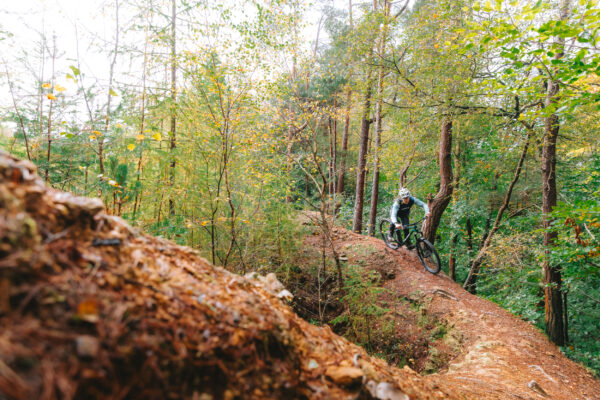The UK Trail Project's new report on trail access shows huge differences in mountain bike access across the country, and hopes to bring land owners and riders closer together
Scotland has nearly as many kilometres of singletrack as England and Wales combined thanks largely to its liberal land access laws, mountainous landscape and low population density, according to a groundbreaking study from the UK Trails Project (UKTP).
So while Scotland boasts some 5,028km of trails, England musters just 4,415km, Wales 1,034km, Northern Ireland 533km, according to Trail Forks. The statistics are even bleaker for England and Wales when it comes to rights of way, where Scotland has only 13,000km to England’s quarter of a million and Wales’s 29,800km… but Scottish riders can ride on 99% of it, to England and Wales’s 14%.
The bold statistics form part of UKTP trails report, sponsored by SRAM and organised by Developing Mountain Bike in Scotland. The organisation spent the last 12 months figuring out the big picture of UK mountain biking – where we ride, what we do and how land owners and riders interact with the goal of improving access for mountain bikers. And the findings were as varied as you’d expect, land access the most important issue for riders.
Led by Dave Evans, the The Trail – Its People, Place and Time pulled together data from 2,000 survey responses, eight public workshops, and 30 interviews with key stakeholders to look into improving and securing land access for mountain bikers.
“The variation in the land management process surprised me,” explained Dave Evans at the Scottish Mountain Bike Conference in Innerleithen. “But we can’t cut and paste a solution that works in one place everywhere because of the regional variance, not everywhere needs a trail association and the system is scalable.”
Why the discrepancy between Scotland and the rest of the UK?
Money, the sheer number of people using the land and its topography seems to dictate just how easily accessible mountain biking is for UK riders in specific locations, according to the report.
So while England and Wales have the pressure of population density and demand to help drive trail development, Scotland also has easier access laws – Scottish Outdoor Access Code from 2005 gave mountain bikers access to most trails under the term “responsible use”. No digging, just riding then.
England and Wales fares next best in the UK with thousands of kilometres of Rights of Way. However, the Report found the 1932 legislation dividing up the region’s trails into those for bikes and footpaths was badly out of date and that most riders in England and Wales felt the network was unsuitable for mountain bikers.
Northern Ireland has more restrictive access than any other part of the UK, with less than 240km of publicly accessible rights of way.
The next part of UKTP’s mission then is to figure out how to improve access for UK mountain bikers on a regional level, using the report to influence and educate decision makers.
“The project is to increase accessibility, adaptability and evolve into what’s coming next, Dave said. “We need to maintain and also adapt. Integration is the reward, emerging from the shadows and starting to integrate mountain biking in the population and in society… that’s incredibly rewarding.”




